
Clarence Eugene "Hank" Snow was a Canadian-American country music artist. Most popular in the 1950s, he had a career that spanned more than 50 years, he recorded 140 albums and charted more than 85 singles on the Billboard country charts from 1950 until 1980. His number-one hits include the self-penned songs "I'm Moving On", "The Golden Rocket" and "The Rhumba Boogie" and famous versions of "I Don't Hurt Anymore", "Let Me Go, Lover!", "I've Been Everywhere", "Hello Love", as well as other top 10 hits.

Hank Williams was an American singer, songwriter, and musician. Regarded as one of the most significant and influential American singers and songwriters of the 20th century, he recorded 55 singles that reached the top 10 of the Billboard Country & Western Best Sellers chart, including 12 that reached No. 1.
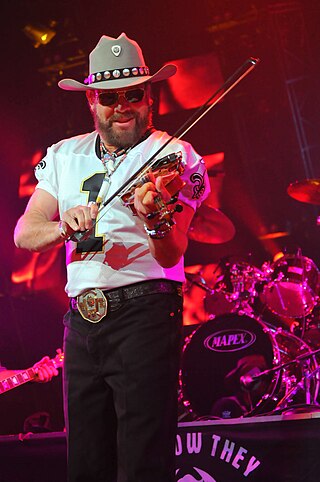
Randall Hank Williams, known professionally as Hank Williams Jr. or Bocephus, is an American singer-songwriter and musician. His musical style is often considered a blend of southern rock, blues, and country. He is the son of country musician Hank Williams and the father of musicians Holly Williams and Hank Williams III.

William Orville "Lefty" Frizzell was an American country music singer-songwriter and honky-tonk singer.
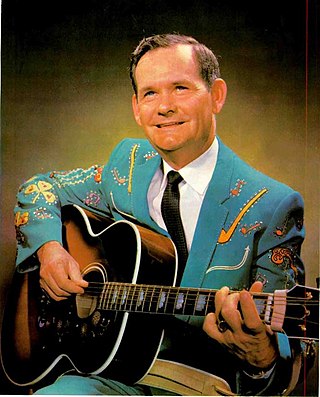
Hank Locklin was an American country music singer-songwriter. He had 70 chart singles, including two number one hits on Billboard's country chart. His biggest hits included "Send Me the Pillow You Dream On" and his signature "Please Help Me, I'm Falling". The latter also went to number eight on the Billboard Hot 100 pop music chart. Billboard's 100th anniversary issue listed it as the second most successful country single of the rock and roll era. It sold over one million copies, and was awarded a gold disc by the RIAA.

Clyde Julian "Red" Foley was an American musician who made a major contribution to the growth of country music after World War II.
"Jambalaya " is a song written and recorded by American country music singer Hank Williams that was first released in July 1952. It is Williams' most covered song. Named for a Creole and Cajun dish, jambalaya, it spawned numerous cover versions and has since achieved popularity in several different music genres.
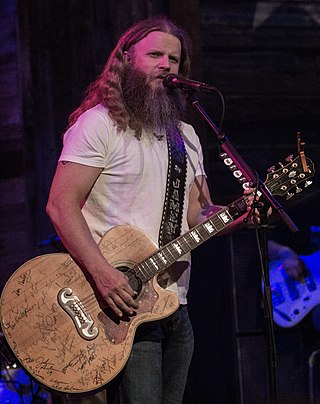
Jamey Johnson is an American country music singer and songwriter.
"Cold, Cold Heart" is a country music and pop song written and first recorded by Hank Williams. This blues ballad is both a classic of honky-tonk and an entry in the Great American Songbook.
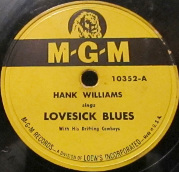
"Lovesick Blues" is a Tin Pan Alley song, composed by Cliff Friend, with lyrics by Irving Mills. It first appeared in the 1922 musical "Oh, Ernest", and was recorded that year by Elsie Clark and Jack Shea. Emmett Miller recorded it in 1925 and 1928, followed by country music singer Rex Griffin in 1939. The recordings by Griffin and Miller inspired Hank Williams to perform the song during his first appearances on the Louisiana Hayride radio show in 1948. Receiving an enthusiastic reception from the audience, Williams decided to record his own version despite initial push back from his producer Fred Rose and his band.

"Kaw-Liga" is a country music song written by Hank Williams and Fred Rose.
"Honky Tonk Blues" was a hit country and western song written and performed by Hank Williams. The original 1952 recording was a major hit, and it later became a hit for later-day superstar Charley Pride.
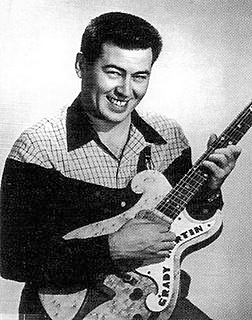
Thomas Grady Martin was an American session guitarist in country music and rockabilly.
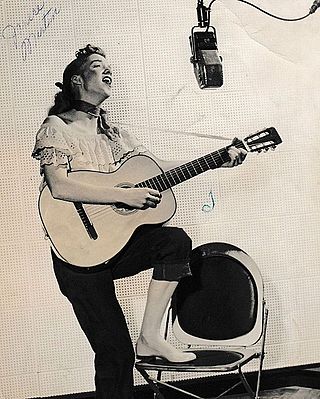
Janis Darlene Martin was an American rockabilly and country music singer. She was one of the few women working in the male-dominated rock and roll music field during the 1950s and one of country music's early female innovators. Martin was nicknamed the Female Elvis for her dance moves on stage, similar to those of Elvis Presley.
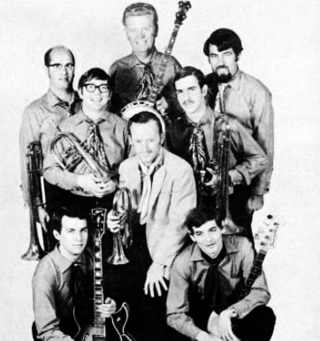
Danny Davis was an American country music band leader, trumpet player, vocalist and producer, best known as the founder and leader of the Nashville Brass.
"Big Bill" Lister was an American honky tonk country music singer. Born Weldon E. Lister, he was nicknamed "Radio's Tallest Singing Cowboy," standing over 6-foot-7 without his cowboy boots and hat.

"There's a Tear in My Beer" is a country song written and recorded by Hank Williams, and later re-recorded by his son in 1988.
"My Bucket's Got a Hole in It" is a song widely attributed to Clarence Williams, who obtained a copyright in 1933, although the melody was recorded under various names years earlier. The song became popular performed by Hank Williams for MGM and reached number 4 on the country chart in 1949.
"The Little House We Built " is a song written by Hank Williams and steel guitarist Don Helms. It was recorded and released by honky tonk singer Big Bill Lister in 1951.

Herbert Paul Gilley was an American country music lyricist and promoter from Kentucky. In his lifetime, he was little known as a songwriter, but decades after his death by drowning at age 27, he was identified more widely as likely having written the lyrics to a dozen famous songs, including two that were hits for Hank Williams: "Cold, Cold Heart" and "I'm So Lonesome I Could Cry". He may have also written "I Overlooked an Orchid", which was a number-one country hit in 1974 for Mickey Gilley. Other songs that have been attributed to Gilley include "If Teardrops Were Pennies", "Don't Let the Stars Get in Your Eyes", and "Crazy Arms".













